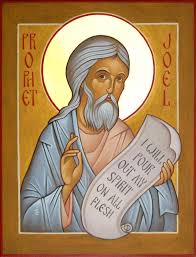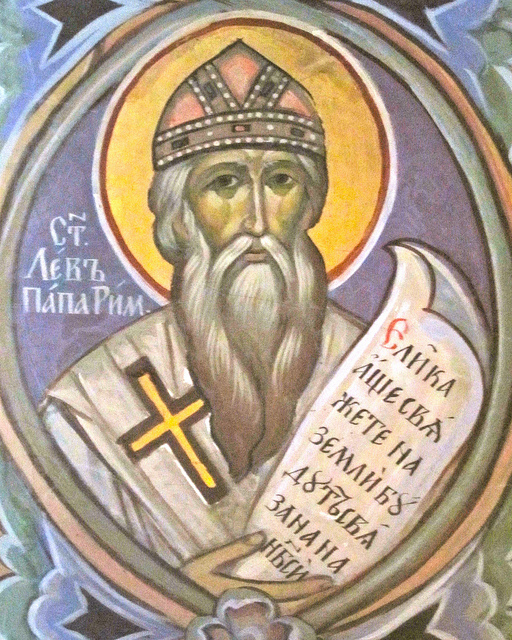 On February 18 we read a good portion of the relatively short book (three chapters in all) of the Prophet Joel.
On February 18 we read a good portion of the relatively short book (three chapters in all) of the Prophet Joel.
Joel prophesies in the first chapter that the Day of the Lord, which is soon to come, will be “a day of darkness and gloom, a day of clouds and thick darkness!” But in the opening verses of today’s reading, he urges repentance and reassures the people: “Yet even now, says the Lord, return to me with all your heart, with fasting, with weeping, and with mourning; rend your hearts and not your clothing” (2: 12-13a).
Joel writes that for those who show by repentance that they want to be with the Lord, there are incredible gifts in store. The Day of the Lord which he has described so darkly will also be, for those who love God, a day when “the mountains shall drip sweet wine, the hills shall flow with milk, and all the stream beds of Judah shall flow with water” (3: 18).
On this day the Church commemorates Saint Leo, Pope of Rome, who was born in the fourth century in Tuscany, Italy. He became Pope in a time when the faith was challenged internally by false teachings about the two natures of Christ, and from the outside by invaders from other lands. Saint Leo knew the Church would be tested from within and without.
He had a wonderful gift of being able to negotiate between two opposing parties. When Northern Italy was overrun by the Huns, he was called on by the emperor himself to meet with Attila, the Huns’ famous warrior leader. With no weapons, and certainly no army, he managed to convince Attila not to devastate Rome. Attila’s servants later said that their master had agreed because he had seen the figure of a priest mysteriously appear above Leo’s head as the two men met.
Two years later, in 455, the Vandals and their leader Gunderic did loot Rome, pillaging homes and taking many of its citizens as slaves. Leo wasn’t able to stop the destruction that time, but he urged the people not to lose hope or faith.
Despite the outward turbulence of his years as Pope, Saint Leo was not distracted from the task of articulating the faith correctly. He insisted that the two natures of Christ must always
be clearly expressed as truth. His words are still used by the Church: “One and the same Christ, Son, Lord, Only-begotten, known in two natures, without confusion, without change,
without division, without separation…”
 |
Troparian – Tone 3You were the Church’s instrument in strengthening the teaching of true doctrine; you shone forth from the West like a sun dispelling the errors of the heretics. Righteous Leo, entreat Christ God to grant us His great mercy. |
Saint Leo knew that the repentance Joel wrote about meant maintaining faith in God even when devastated by foreign invaders. But he knew that it also meant continuing to proclaim
the truth of Jesus Christ’s two unbreakably united natures. Only by believing in God even when facing physical suffering, while also honoring Him as “one and the same Christ…known in two natures…” can we be worthy of the Day of the Lord.
